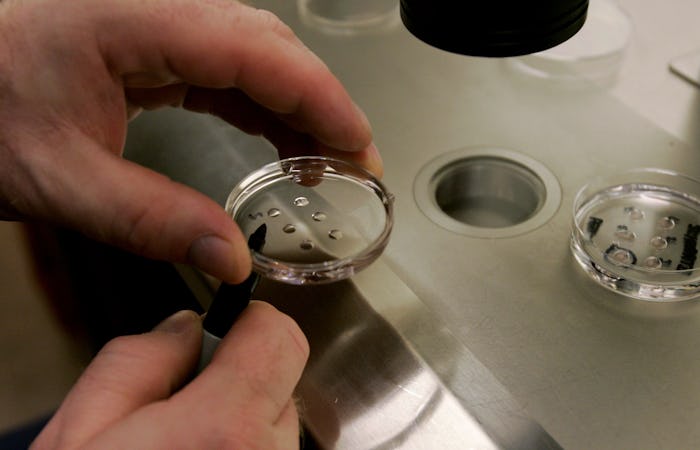Life

Are Fertility Treatments & Heart Issues Linked?
Fertility treatment obviously isn't fun for anyone, especially when it fails to produce the hoped-for result. And now, there's some more potential bad news for women who have experienced difficulties in getting pregnant: A new study claims that failed fertility treatments could increase your risk for cardiovascular disease. Still, the study's authors emphasized that the results did not show a high rate of increased risk, so you shouldn't necessarily give up on that fertility treatment just yet.
The study appeared in the Canadian Medical Association Journal. Researchers tracked nearly 30,000 women in Ontario who participated in fertility treatments between 1993 and 2011. Around two thirds of those women were unable to give birth within a year of receiving their treatments, and the researchers found that these women went on to have a 19 percent higher risk of developing heart disease than women who did give birth after the treatments. So, that's definitely not a comforting statistic.
However, it may not necessarily be as bad as it sounds, a fact which the study's authors were eager to point out. First of all, further studies still need to be conducted in order to back up this research. After all, it's a pretty new research field.
A second point to consider: the study involved many women who were receiving fertility treatments back in the '90s and early 2000s. Treatment has changed since then, with many women undergoing fewer rounds.
Although the rate of heart failure increased, it still remained low, with only 10 women per 1,000 who didn't get pregnant experiencing a cardiovascular event, compared to 6 per 1,000 in women who did get pregnant. It wasn't as though fertility treatments lead to staggering rates of heart issues.
And, as Time points out, the relationship might work the other way around. Perhaps women who received failed fertility treatments did not go on to develop heart conditions because of the treatments. Perhaps the treatments failed because the women already had an underlying health issue, which only manifested later.
So, what does this mean if you're considering fertility treatments? The study is scary, for sure. Fertility treatments already have some drawbacks, such as the expense, the discomfort, and, if treatment fails, an increased risk of depression and anxiety. But for women who are determined to try for a baby, this new study should not be a deterrent. The study's co-author, Dr. Donald Redelmeier, said in a news release,
We don't want to alarm women who undergo fertility therapy; we are instead suggesting that as women age, they should stay mindful of their health and remind their physician about any fertility therapy years earlier.
That sounds entirely doable.